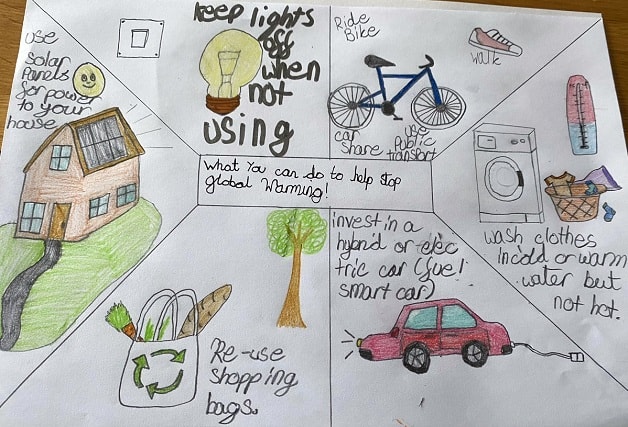
Life on the magical, marvellous, challenging and chaotic planet Earth is the theme for a term full of research, investigation and creativity for Year 6 children at Upton Junior School, Broadstairs.
Their studies for the World Around Us topic is linked across many aspects of the curriculum to create a holistic learning platform.
Head of Year 6 Athanasia Papa-Adams explained: “Children are learning about the history of global warming and the controversy surrounding it; in Geography they are comparing similarities and differences between countries including England, France and Brazil, as well as investigating lines of latitude and longitude and biomes, which are distinct biological communities that have formed in response to a shared physical climate.
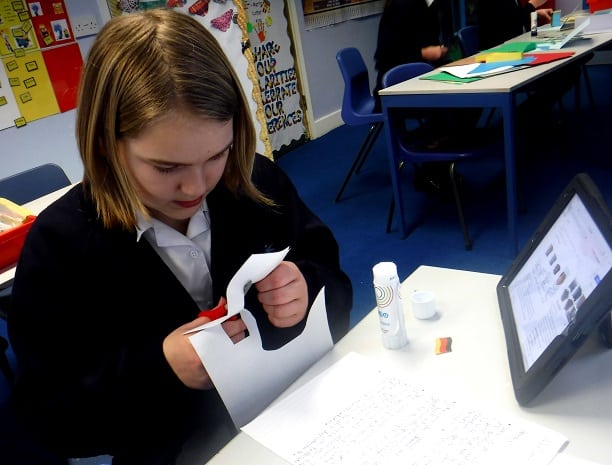
“In Art we are focussing on the colourful world of modernist artist Georgia O’Keeffe; while in music and PE children are researching different music from around the world and linking this to a variety of dance styles.
“In Science, we are understanding how living things have changed over time and that fossils provide information about living things that inhabited the Earth millions of years ago. We are investigating Darwin’s theory of adaptation based on finches in the Galapagos Islands.”
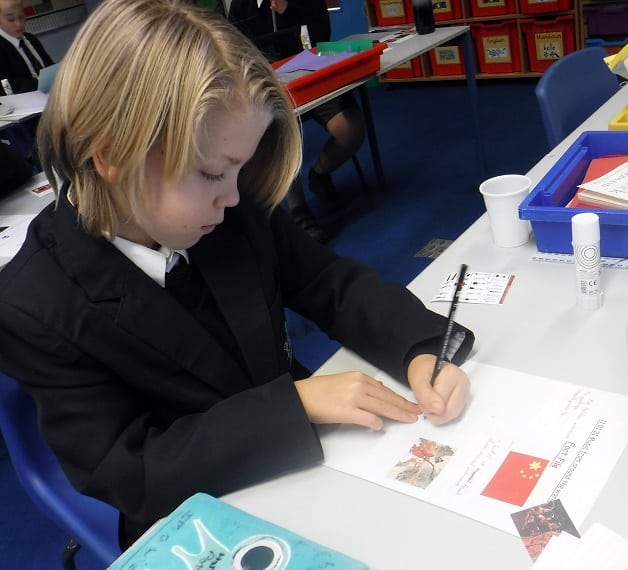
The highly-regarded text Floodlands by Marcus Sedgewick is being studied in English and its story links across the curriculum into climate changes and rising sea levels around the globe. It centres on one girl’s adventure to track down her family after they become separated as flooding isolates parts of the UK in the future.
Meanwhile, information posters highlighting global warming have been made by pupils who are passionate and respectful about the sustainability of the environment and the planet’s eco-systems.
Some have demonstrated their concern in specimen letters to Felix Tshisekedi, the President of Congo, to explain why it is important that he puts a stop to deforestation of the Congo Basin which will in turn help reduce the effects of climate change.
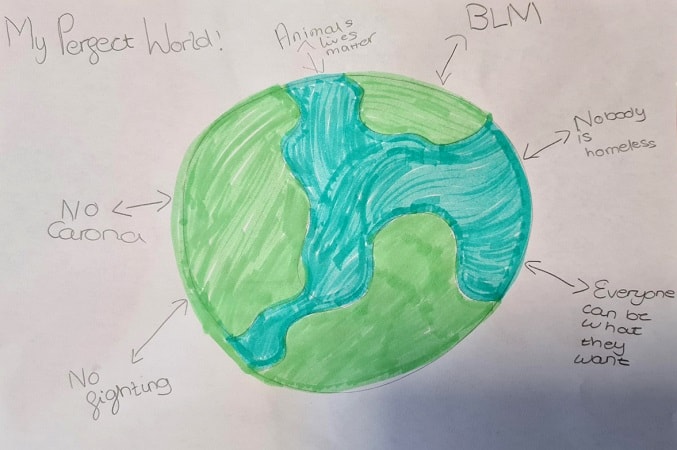
Year 6 pupil Iris echoed the sentiments of many concerned boys and girls when she wrote: “It is important that you put a stop to deforestation. It is one of the biggest sources of carbon dioxide, because when trees are cut down the carbon stored within them goes into the air.
“We need trees to help oxygen flow into our air. Without trees it would be really hard to breathe, the air will be full of greenhouse gases, and this will make climate change worse. Cutting down so many trees affects the entire world and if everyone stopped, our world would be a better place.”
And some pupils have written about My Ideal World. Here is what Heidi hopes to see: “There would be no Covid-19 and no pollution. We would try and save the animals that are endangered or hurt and we will definitely make sure forests are kept peaceful.
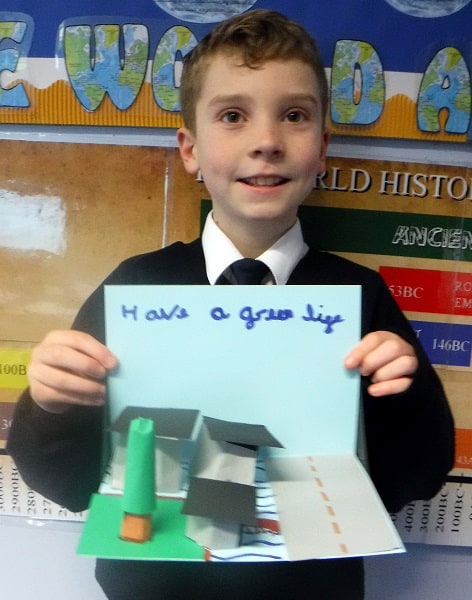
“People who cut down trees are actually killing the world more because we need oxygen to breathe and we need a tiny bit of carbon dioxide, not a lot or we can die, but trees need carbon dioxide to survive and if all those trees go they can’t take in the carbon dioxide and we will die.”
Head of School Darci Arthur said: “This is a complex and challenging topic that embraces much of our curriculum this term. Our children are passionate about their world and the need for a sustainable ecology. The work they are producing in school and through home learning is well researched, imaginative and thought-provoking.”

